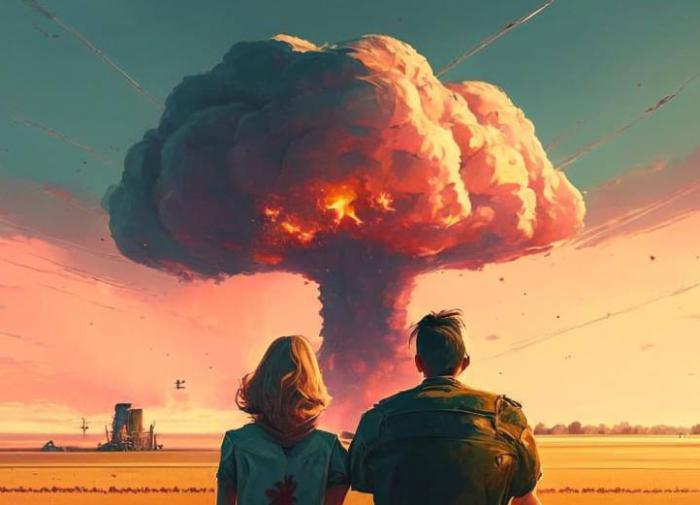Russia pulls out from Comprehensive Nuclear Test Ban Treaty
On Tuesday, October 17, the Russian Parliament, the State Duma, gave the first reading to the draft law to revoke the ratification of the Comprehensive Nuclear Test Ban Treaty (CTBT).

Commenting on the vote on the bill, Duma Speaker Vyacheslav Volodin wrote that the withdrawal of the ratification should "contribute” to ensuring Russia's security against the backdrop of the US refusal to ratify the CTBT.
"Washington should finally understand that hegemony on their part does not lead to anything positive. There is a need for dialogue on the principles of mutual respect, absence of double standards, and non-interference in the affairs of sovereign states. The Russian Federation will do everything to protect its citizens and ensure that global strategic parity is maintained," Vyacheslav Volodin wrote on Telegram.
The nuclear weapons issue was one of the topics that Russian President Vladimir Putin raised during his speech at the plenary session of the Valdai Forum on October 5. Answering a question from political scientist Sergei Karaganov about the possibility of tightening the Russian nuclear doctrine, Putin cast doubts on the need for such changes.
As Putin noted, "everything can be changed,” but there was no need for that.
"I just don't see the need for it. There is no situation in which today, for example, something would threaten the existence of the Russian state,” the president responded to the political scientist who proposed using nuclear weapons during the special military operation in Ukraine.
Putin said that he hears calls to revisit nuclear tests. Russia and the United States signed the treaty to stop nuclear testing, but it was Moscow that ratified the treaty, and Russia may thus revise its ratification.
"Technically, it is possible to revoke ratification, and if we do this, that will be quite enough," Vladimir Putin said.
The next day after Putin's remarks, Vyacheslav Volodin announced that the Council of the State Duma would consider revoking ratification of the Comprehensive Nuclear Test Ban Treaty. The withdrawal of ratification comes in line with Russia's national interests and would be a mirror response to the United States, Volodin said. On October 9, the State Duma decided to look into the question within 10 days — until October 18.
In 2022, speaking at the Valdai Forum, Putin also raised the issue of nuclear weapons and said that the United States was the only country that used nuclear weapons against a non-nuclear country. Russia should take an example from Washington in some ways, he noted. However, the Russian leader clarified that Moscow does not intend to use nuclear weapons, not even during the special military operation in Ukraine. There would be neither military nor political sense in such actions, he noted.
It is worthy of note that the day before the 2022 Valdai Forum, Putin personally supervised exercises to launch a massive nuclear strike in response to a similar enemy strike.
In September 2023, CNN reported that China and the United States intensified activities at their nuclear test sites.
The United States is developing new types of nuclear warheads, the performance of which will sooner or later need to be tested in practice, Andrey Belousov, Russia's Deputy Ambassador to Geneva said.
In February 2023, President Putin called on Rosatom and the Ministry of Defence to prepare for possible nuclear tests. The Russian Defence Ministry later said that the Russian nuclear test site on Novaya Zemlya archipelago was ready to resume testing.
Dmitry Glukhov, a representative for the Russian permanent mission to the UN, noted that Russia would return to nuclear testing only if the United States took a similar step.
Negotiations on the CTBT took place in Geneva within the framework of the Conference on Disarmament from 1994 to 1996.
The Treaty was adopted at the 50th session of the UN General Assembly and opened for signature in September 1996. It expanded the 1963 Moscow Treaty to absolute values. Thus, each state party undertook not to carry out test or any other nuclear explosions in any location under its jurisdiction or control.
The Comprehensive Nuclear Test Ban Treaty includes 180 participating states. However, only 41 states have ratified the document to date (including Russia, Great Britain and France). In order for the CTBT to come into force, it needs to be ratified by 44 states. The USA, China, Egypt, Israel and Iran signed the CTBT, but never ratified it. India, North Korea and Pakistan did not sign.
The 2018 US nuclear doctrine states that Washington does not intend to ratify the CTBT. Instead, the USA is taking steps towards a possible resumption of nuclear tests. Such a development questions the expediency of the treaty.
Subscribe to Pravda.Ru Telegram channel, Facebook, RSS!




